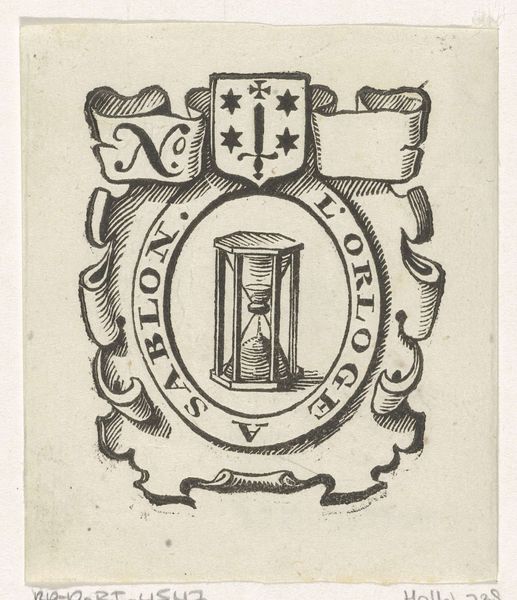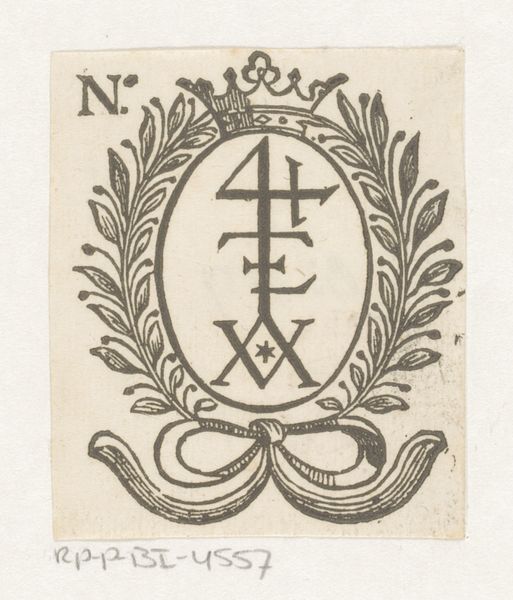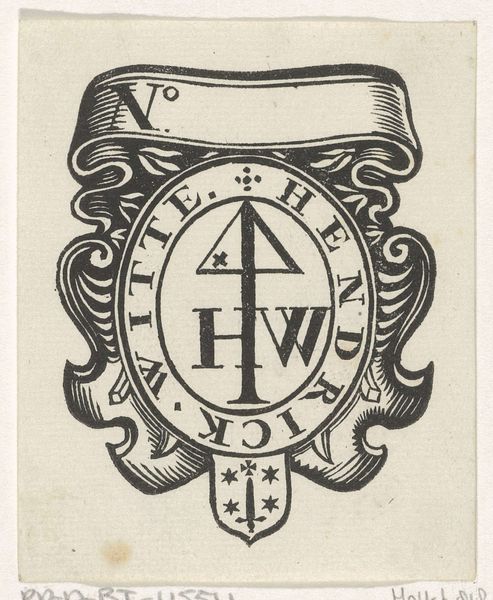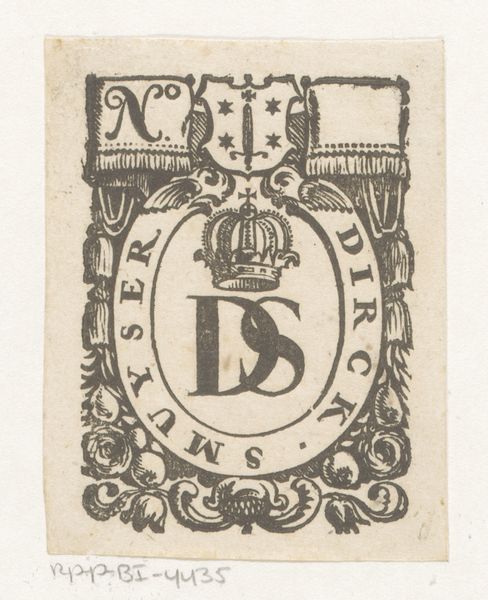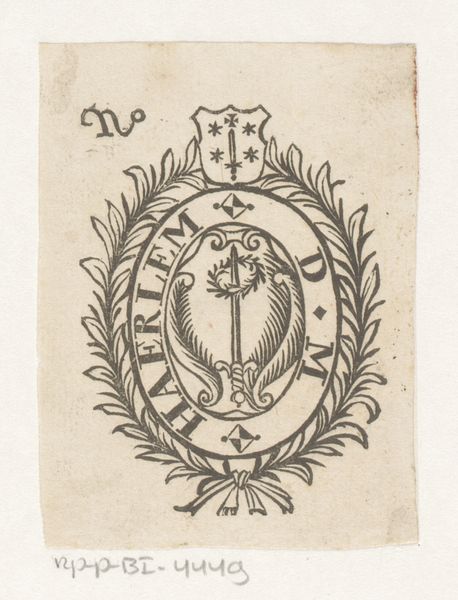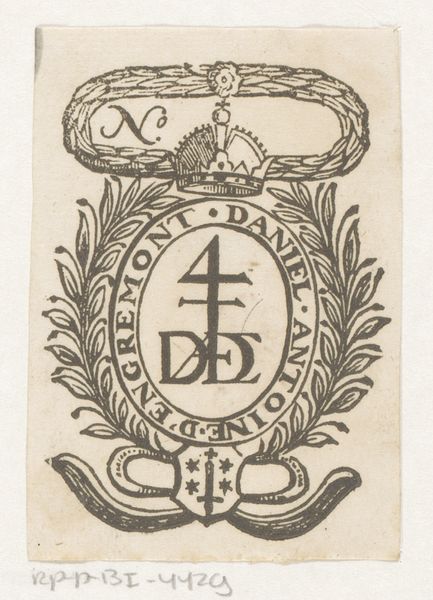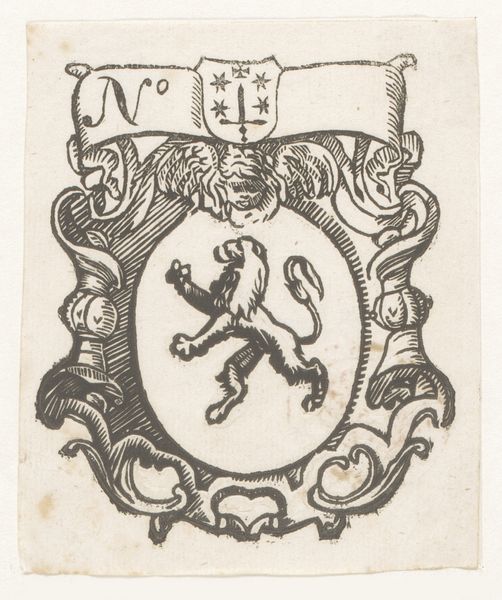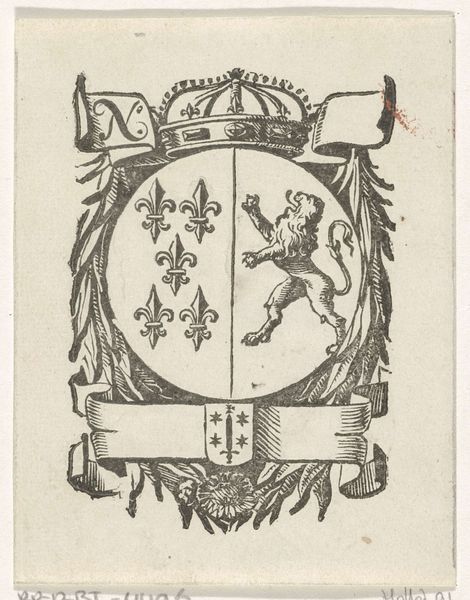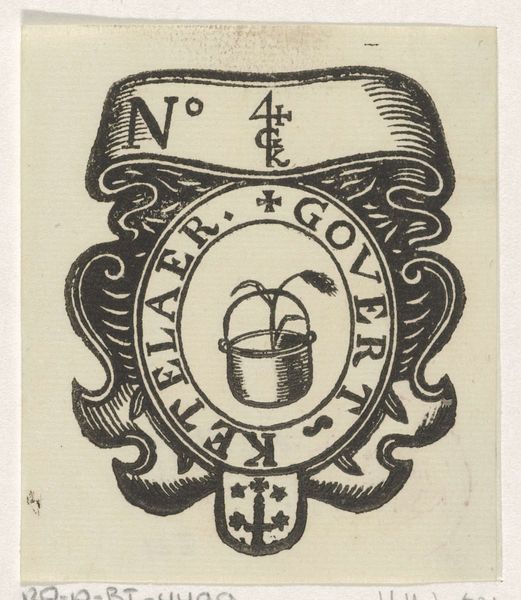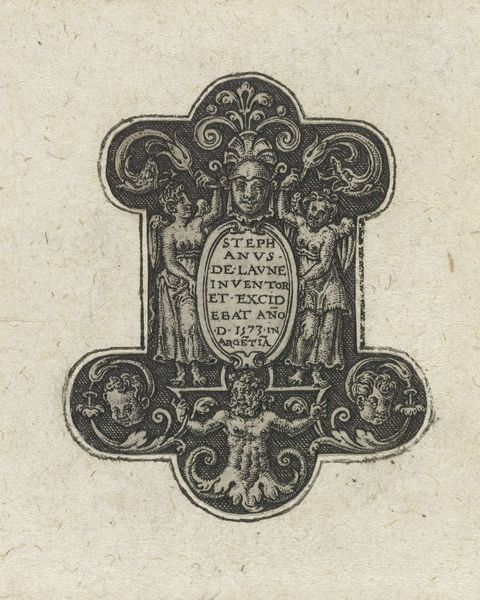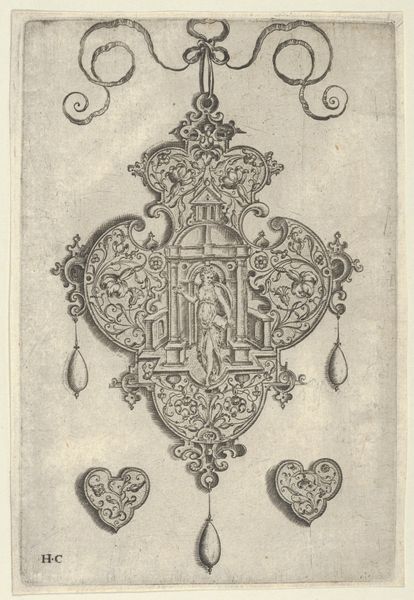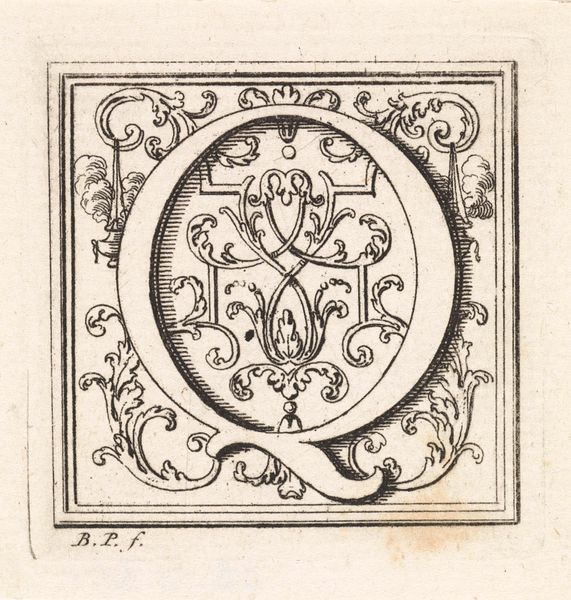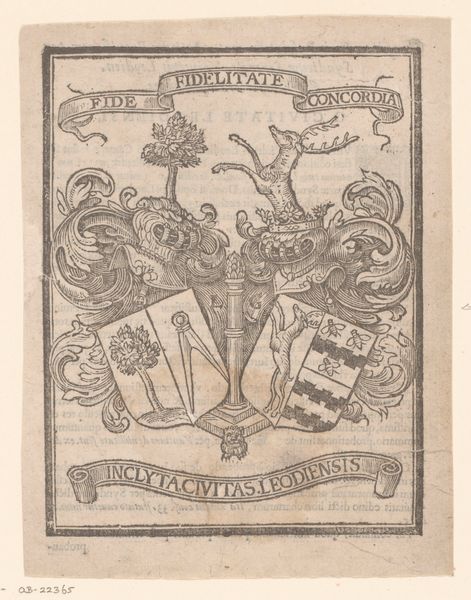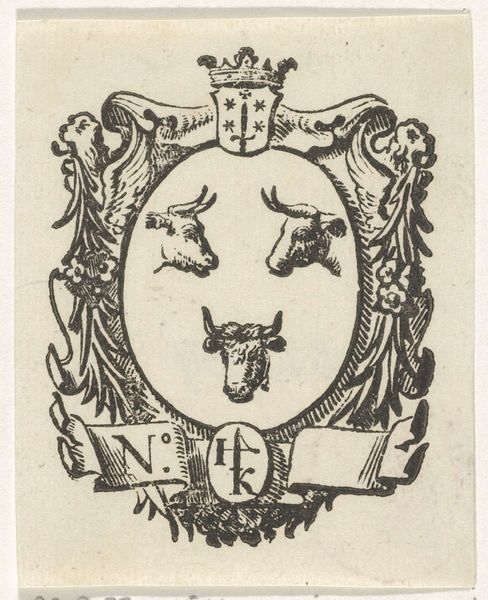
drawing, print, ink, engraving
#
drawing
# print
#
ink
#
geometric
#
line
#
engraving
Dimensions: height 74 mm, width 64 mm
Copyright: Rijks Museum: Open Domain
Editor: Here we have a 17th-century engraving, made with ink, titled "Vignet met een monogram en het wapen van de stad Haarlem," which translates to "Vignette with a monogram and the coat of arms of the city of Haarlem." It feels dense with symbolism; what strikes you most about its imagery? Curator: The arrangement and elements speak of power and civic identity, certainly, but more than that, they speak to shared values. Notice the interwoven symbols – the city's coat of arms anchoring the base, crowned by what appears to be a Christian monogram nested within a heart. How do these elements relate, would you say? Editor: I see the heart and monogram adding a personal, maybe even a spiritual dimension to the civic identity? Curator: Precisely! The heart, a potent symbol of love and devotion, paired with the Christogram, infuses the concept of civic duty with religious and personal significance. Do you recognize the Christogram itself? The IHS? Editor: I think so… it refers to Jesus, right? Is that common for civic emblems? Curator: Common enough in the 17th century. These emblems weren’t merely administrative; they were a constant visual reminder of a shared cultural narrative. It shows the convergence of civic pride, personal faith, and mercantile strength, unified in image. What implications would that visual connection carry at the time, do you think? Editor: It suggests unity – that to be a citizen of Haarlem was also to embrace those religious ideals. This emblem acts as an early form of branding, doesn't it? I hadn't considered civic symbols in this way before! Curator: Indeed. By understanding how symbols are deliberately chosen and arranged, we can reveal a great deal about the priorities, identity, and cultural memory of the people and places they represent.
Comments
No comments
Be the first to comment and join the conversation on the ultimate creative platform.
